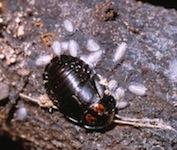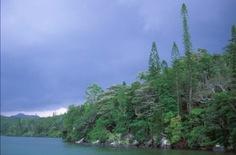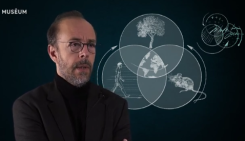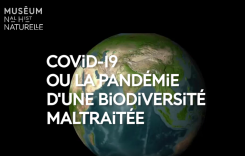
Philippe GRANDCOLAS



45 rue Buffon
CP50
75005 Paris
Directeur de recherche UMR 7205 ISYEB CNRS, MNHN, EPHE, Sorbonne Université, Université des Antilles
Institut de Systématique, Evolution, Biodiversité, équipe EvofoncT
Research
My research focuses on the phylogenetic analysis of evolution and is aimed at reconciling the approaches developed for building trees on the one side and those developed for using trees on the other side. The rationale of such a reconciliation is to conduct conservative tests of evolutionary hypotheses (« scenarios ») and to provide the best biodiversity sampling possible according to taxonomic knowledge. In this framework, I contributed to the concept of phylogenetic tests of evolutionary scenarios (e.g., Grandcolas, 1997 ; Grandcolas et al., 2001, 2004, 2011 ; Grandcolas & D’Haese, 2003) and I studied the evolution of behavior in Dictyopteran Insects (e.g., Grandcolas, 1998 ; Grandcolas & Deleporte, 1996 ; Legendre et al., 2008, 2013 ; Pellens et al., 2002, 2007).
These phylogenetic and comparative approaches were rooted in systematic studies and field sampling of cockroaches, with varied contributions to their taxonomy, behavior and classification (e.g., Grandcolas, 1994, 1996, 1997). During the last years, developing such approaches has been made in collaboration with the colleagues from my former team « Phylevo » and the present team « Evofonct » headed by Frédéric Legendre. In doing so, we consider the fundamental need for making available the biodiversity data through the taxonomic system, the collections and associated data bases, concerning fossil and present species, and morphological molecular or behavioral data.

More recently, I contributed to the phylogenetic analysis of the origin of island biota with the study of the special case of New Caledonia. « Island » is a polysemic term used for both small continents or ephemeral « oceanic » terrestrial landscapes and the theories of island biogeography are still in need of important clarification. New Caledonia is particularly interesting in this respect, since it was considered continental on a misunderstood geological basis but should actually be regarded as an old oceanic island. It offers then a great opportunity to understand how to analyse and date the origin of the biota without being trapped in diverse ad hoc assumptions of dispersal or vicariance (e.g., Murienne et al., 2005 ; Grandcolas et al., 2008 ; Nattier et al., 2011).

–-

Episode 2 - "Pandémie et Biodiversité (2021)"

Pour que nature vive (2020)

COVID-19 (2020)
–—
––––
Despite the many advances of the genomic era, there is a persistent problem in assessing the uncertainty of… Molecular Phylogenetics and Evolution vol. 200, , p. 108177 ISBN: 1055-7903 Publisher: Elsevier Type: 10.1016/j.ympev.2024.108177